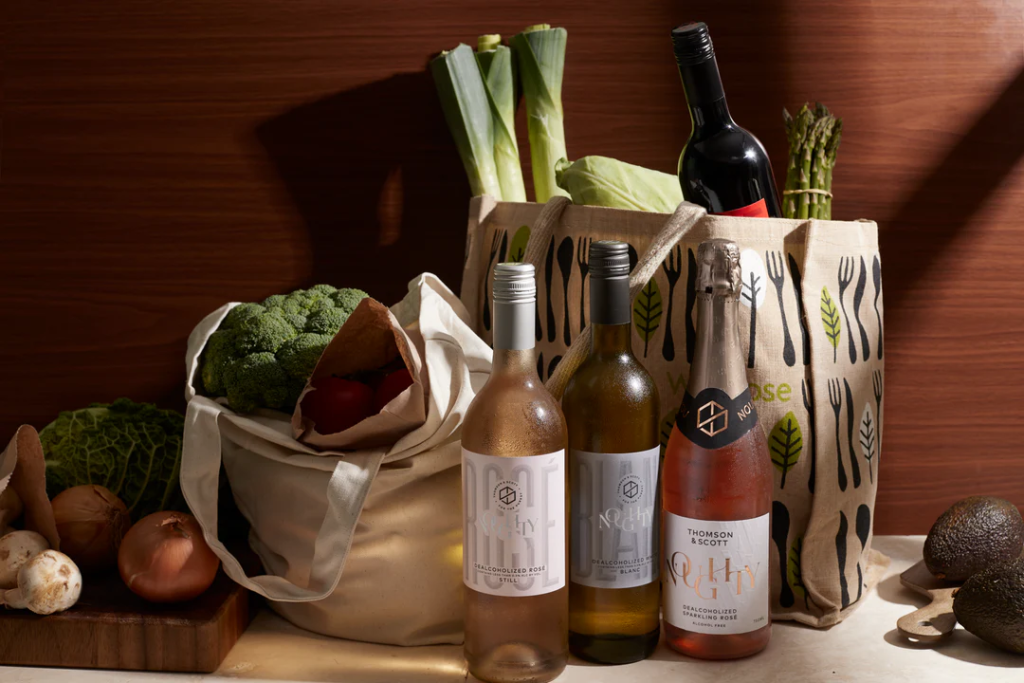As Sober October gains traction in the UK, more adults are exploring low and non-alcoholic alternatives, reflecting a broader push towards mindful drinking and healthier lifestyles.
The Growing Popularity of Sober October and Non-Alcoholic Wine Alternatives in the UK
As October rolls around, an increasing number of individuals in the UK are opting for an alcohol-free month, a movement popularly known as ‘Sober October’. According to a recent KAM report, 74% of adults in the UK are currently moderating their alcohol consumption, with 40% of them actively researching low or non-alcoholic options before heading out to a restaurant or pub. This trend has fuelled the rise of non-alcoholic and lower-alcohol wine alternatives, catering to those who want to enjoy a glass without the accompanying alcohol content.
Non-alcoholic beer has been a front-runner in the market, but the vast and diversified landscape of wine is catching up, offering a variety of options for those choosing to abstain or moderate. Brands like Bolle have made significant strides, winning accolades such as silver medals at the London Wine Challenge. Their twice-fermented sparkling wines, priced at £19.99, have been highlighted for their crisp, green apple freshness.
For those with a preference for something rosier, Wild Idol’s premium non-alcoholic sparkling rosé is recently on offer at £20, reduced from its usual £30, capturing drinkers with its fruity and honeyed aftertaste. Another noteworthy contender is LA Brewery’s English Blush Kombucha, retailing for £10, offering peachy, rhubarb, and floral notes for an elegant sipping experience.
In the realm of still wines, which pose a more challenging stride towards achieving satisfaction, Thomas & Scott’s Noughty range stands out. Founded by former BBC Arts Broadcaster Amanda, their sparkling Blanc de Blancs was one of the first non-alcoholic wines that gained considerable appreciation in the market. Their still white blend from South Africa, made from Chenin Blanc and Chardonnay, and their Provence-inspired South African rosé are both priced under £10 and continue to maintain popularity with less than 0.5% alcohol content.
For red wine lovers, the lighter style presented by Wednesday Domaine’s Sanguine, at £15.75, serves as an enjoyable alternative that holds its own when served slightly chilled.
As the movement towards mindful drinking continues, even those who aren’t ready to forgo alcohol entirely are exploring lower-alcohol options. Casillero del Diablo’s Belight range offers wines at an appealing 8.5% alcohol and just 64 calories per glass. Their Chilean Sauvignon Blanc and rosé provide vibrant flavours without excess.
In addition to these intoxicant-free options, opportunities to discover and invest in lesser-known wines through platforms like Naked Wines have emerged. These services provide consumers with exclusive access to unique offerings, appealing to both wine enthusiasts and casual drinkers alike. Naked Wines extends an additional benefit, offering its customers a satisfaction guarantee, ensuring that personal tastes are catered to accurately.
The rise in alcohol alternatives aligns with a broader societal shift towards more health-conscious living and demonstrates the growing market interest in providing quality options for those choosing to reduce alcohol consumption. This trend highlights innovation within the beverage industry, ensuring enthusiasts can enjoy the culture and experience of wine without the alcohol.
Source: Noah Wire Services
Image: Noughtyaf.com





